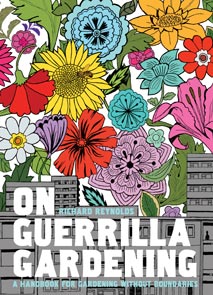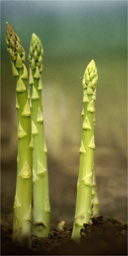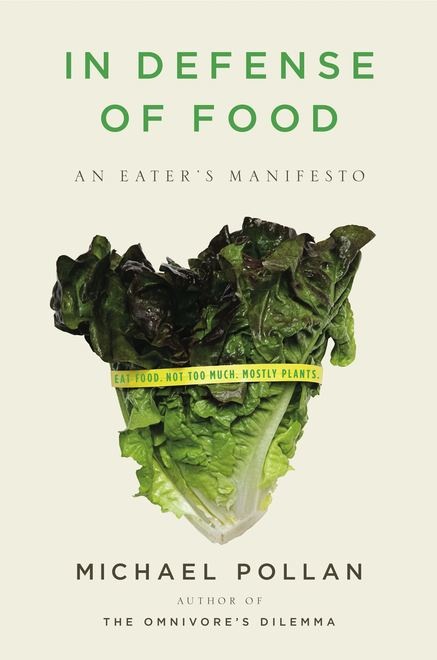Today, in lieu of recipes, we talk. About
Skinny Bitch. Because if I don't ramble on about it for at least a LITTLE bit, I may very well implode.

I read this book (and its follow-up,
Skinny Bitch in the Kitch) just the other week, after seeing it mentioned several times in veg-related contexts. And I am so a-flutter with mixed feelings about it that I've been desperately trying to find someone else to discuss it with. So please: If you've read it, I'd love to hear some other people's thoughts on it.
Essentially, my problem with the book is this: The book is essentially a book that promotes veganism (by promoting a healthy diet). But it does so by trying to hook in female readers (and buyers) by focusing on the goal of getting us skinny. Not "healthy," but "skinny." Now, I know those of you who've read this book are saying, "But, yes: healthy as well." And you're right. Once you sink your teeth into the book, you can see it's clearly promoting a healthy lifestyle. But from the cover? From the press? From the blurb on the back? From the very first lines of the book: "Are you sick and tired of being fat? Good. If you can't take one more day of self-loathing, you're ready to get skinny"? From comments such as ""Yes, it is challenging to avoid these foods, but you will reap the karmic rewards of being vegan (like being skinny)"?
The focus is skinny. Not healthy. And I don't think that's the best of focuses.
And what pains me about skinniness being the focal point of this book IS THAT THERE'S A LOT OF GOOD STUFF IN THERE. And it's been MADE ACCESSIBLE to the general public. But it's made accessible to the general public with the motive being to promote skinniness, and I have a difficult time endorsing books that are latching on to an unhealthy and overly-simplified (and media-distorted) view of what women should be striving towards.
And yet, the other part of me keeps shouting, "You go, girls!" Because I'm sure this book has succeeded in making quite a few women think twice about what they jam into their bodies. In fact, I actually
recommended the book the other day to a woman in one of my classes who was asking me questions about eating vegan and how to eat healthier--and the reason I recommended it to her is because it IS ridiculously accessible, and because of the voice of the book.
I mean, Peter Singer's
The Way We Eat: Why Our Food Choices Matter or John Robbins'
Diet for a New America are infinitely better, more thorough, and more well-constructed books about why people should go veg. *BUT* then again, they're not the type of books that most people (and by "most people" I mean mostly "the general, meat-eating public") wants to sink their teeth into over a cup of coffee and a bagel. Most People don't actively seek out books about how the food they're shoving into their bodies is a filthy stinking mess of chemicals, hormones, germs, and dead flesh. In fact, they generally wanna steer clear of that type of reading. They'd rather go on living with the illusion that their food comes from Ronald McDonald's peaceful, harmonious farm, where animals romp around freely, enjoying sun and fresh air.
And that's why I found myself recommending
Skinny Bitch instead of either of these other books. Because although the authors are ALSO telling us a whole bunch about how the food we're shoving into our bodies is a filthy stinking mess of chemicals, hormones, germs, and dead flesh, they're doing so under the guise of promoting skinniness. And because the book doesn't outwardly APPEAR to be about about veg*nism and the evils of meat, they're actually able to GET readers to actively sit down and read about all these things over a cup of coffee and a bagel. And that's pretty damn sneaky and cool.
The authors are basically brilliant magicians: They're distracting us over there on the left by shouting about skinniness while on the right, they're secretly pumping us full of anti-meat information, and then TA-DA, they pull that rabbit out of the hat, and we're all like, OOOOOH, and we didn't even notice all that other information they just managed to jam subconsciously into our craniums.
And it's the way the book has been promoted, and the VOICE of the book, that makes them able to distract people from the fact that they're basically telling them "GO VEGAN!"
Anyways: the voice of the book. That's what I want to discuss next. Mother of god if I didn't immediately find myself going "I sure as shit hope I don't sound like that when I yammer and cuss on my blog all the time." Because the voice of the book (the writing-style, it's "in your face" way of talking) got on my nerves almost IMMEDIATELY.
I mean, I like to call people "my bitches" all the time. But that's because you ARE my bitches. But do I like to be reading something that's all "hip" and confrontational AND ACTUALLY REFERS TO ME AS A "LAZY SHIT" AT POINTS? I don't think so. Because you know what: the writers don't know me. And even if I *AM* a lazy shit, I sure as hell don't want someone getting all up in my face about it. Plus, how is that a POSITIVE way to approach things? I mean, please: degrade me and make me feel even shittier and fatter and lazier, because THAT will make me feel LOTS better about myself and motivate me to get skinny.
I mean, understand the Ra-ra cheerleading-thing they've got going on--"You *WILL* get skinnier! You *WILL* get healthier! Be aggressive! B-E aggressive! B-E A-G-G-R-E-S-S-I-V-E!" And I get that they're trying to rally up the forces by calling us lazy shits and whatnot. But unless you want me to pin you the hell down and kick the shit out of you, I do NOT want you calling me a lazy shit. Because that is just so fricking negative.
And yet: I am glad in a lot of ways that this book is written with the obnoxious "voice" it has. AND THAT INFURIATES ME!
Why are you
glad, you ask? Well, because it DOES give the material a much more casual accessibility. It DOES cheerlead us into wanting to listen to them and get healthy and skinny. And it DOES all this while sneaking in lots of informative tidbits about why you should steer the hell clear of meat and eggs and milk. And that's cool and subversive in a lot of ways.
I mean, when I recommended the book to that woman in my class, it was because my thought process went something like this: "Oh my GOD if I have to hear her squeak and screech one more time about something girlie, I may have to stab myself in the head. But, Lindy Loo, she's asking you about something that you should be gung-ho excited to talk about, so handle it carefully. And hey, wait. Given her personality, I bet she'd TOTALLY dig
Skinny Bitch, AND it'll sneakily insinuate some of that anti-meat-eating information into her reading as well. So I'm gonna recommend it!"
Because, you see, that's what's kind of sneakily brilliant about this book. There are a lot of women who will LOVE the voice, in all its obnoxious casualness. There are a lot of women who like to be ra-ra-ra-ed into eating healthier. And if they're encouraged to read this book, they're going to get lots of information drilled into their brains about why you should eat vegan. And I'm all about that.
And it's not done in any sort of Peter-Singer-esque-type way (as brilliant as the man is). It's ridiculously accessible. It's geared towards a certain type of woman (the type that goes out and reads books about getting skinny). And it's written about in such a way that a) it doesn't seem like it's trying to force a veggie diet down your throat, and b) it seems absolutely casual in informing you of all the horrific stuff that goes into your daily diet of meat, cheese, and eggs.
And it's that casualness which I think will convince a lot of women to try eating differently. Because the book's not all cold facts and statistics. And it's not video footage of cows being tortured. (Both of which, unfortunately, can have a tendency to alienate people.) It's the voice of your sister/best friend/mom casually chatting with you about the craziness of meat over a cup of tea. And THAT I think is kind of brilliant.
Not to mention the fact that it has lots of awesome meal-plan ideas. It offers a list of (non-vegan) ingredients to steer clear from. And it promotes lots of veg resources. All good good stuff.
And yet, I'm still hung up on the fact that it doesn't seem to make the connections between the objectification of animals and the objectification of women. That the reason people eat meat without a second thought is that they turn animals into objects in their brains, not making the connection between what's on their plate and where it came from, and when they DO make the connection, blowing it off by treating animals like objects "because they were put on the earth for us to eat." And the reason women have to deal with such bullshit all the time (from abuse to eating disorders to a whole LIST of other garbage) stems from us being viewed as objects as well.
We are the nameless, personality-less body upon which the latest fashions are displayed.
We are the Thing which cooks dinner and takes care of the kids.
We are the hole for men to jam their dicks into.
You get the point.
And latching on to the whole "skinniness" goal is, again, reducing women down to their bodies. Granted, after all the ra-ra-ing and slamming of fat women and calling us lazy shits, the authors DO try to tell us "we're more than just a body." That we're valuable on the insides and all that.
Then again, the way they TELL us this still insinuates that our goal should still be to focus on the state of our bodies, because it is through our bodies that we will attain all other happiness:
"Now that you're a Skinny Bitch, don't turn into a skinny bitch. We conceived of the title,
Skinny Bitch, to get attention and sell books. We just wanted to spread our message far and wide and though
Skinny Bitch was a good way to do it. But we are not bitches, and we have no desire to promote bitchiness. There is nothing uglier than a pretty woman who's nasty. If you look great, you should feel good about yourself and be happy. Instead of fixating on the last five pounds you want to lose, celebrate the five you already lost. Progress, not perfection. Don't be insecure or competetive or feel threatened by women who are thinner or prettier than you. Be happy for them; it will make you look better. Smile a lot, give compliments out whenever you can, and be nice to everyone. You'll just keep getting prettier and prettier and skinnier and skinnier." (186)
What should we want? To be skinny and pretty!
And that's just a bunch o' crap.
And not exactly healthy to promote in a culture that already spends WAY too much time shoving that shit down our throats:

I'm not saying that that isn't PART of what women want. Even capable, intelligent, independent, in-your-face type women such as many of you and me, my dear readers. It's unavoidable. We want to be liked. And a lot of how we are liked depends on how we are seen. (Both women AND men.) So of course we want to feel pretty.
But again: should we be getting guilt-tripped into some skewed media-whorey image of what our bodies should look like? And be guilt-tripped BY OTHER WOMEN of all things--apparently SMART women who can write books and know a little bit about their veg-shit? Do I want to endorse a book that doesn't REJOICE in the wonderful and beautiful variety of shapes and sizes of women out there? I mean, does this sound RIGHT to you??
So yeah: that's the long and short of it all. This book discusses veganism and all the horrors surrounding meat in an easily-accessible and unconfrontational way. It offers up a lot of good information about veganism, from meal plans, to bad ingredients, to resources. And it's a quick read. And I'm all about that.
And yet, I still find myself wondering: At what cost?











